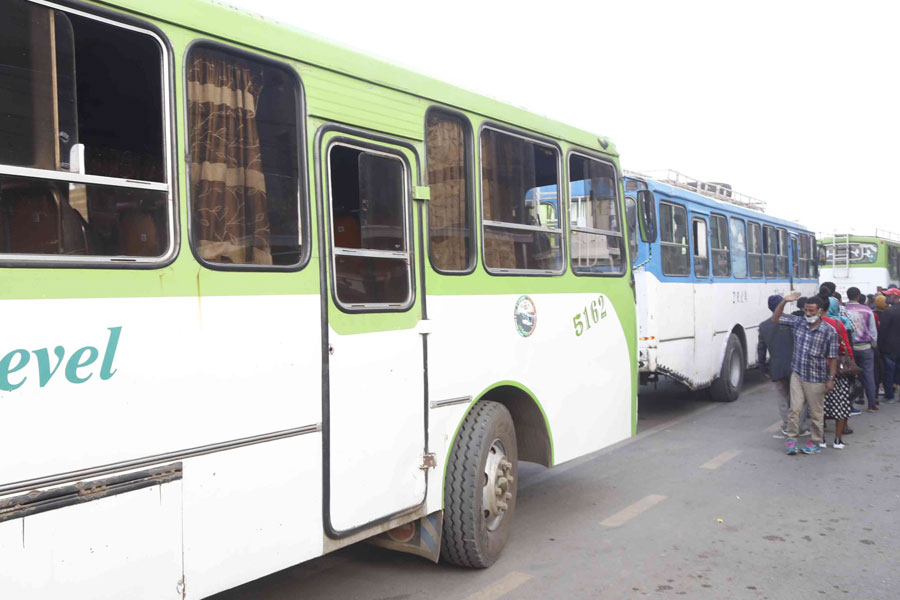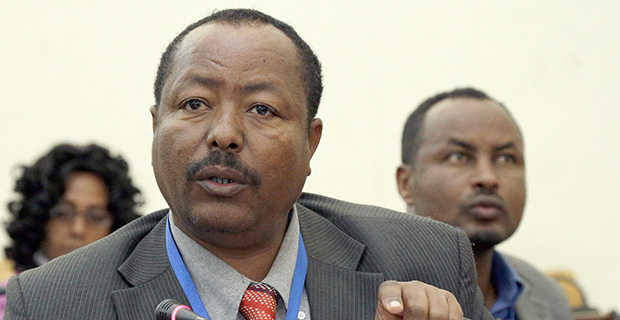
Fortune News | Feb 25,2023
May 3 , 2024
By Eleanor Carter , Carolyn J. Heinrich
As voters worldwide head to the polls this year, many have lost trust in politicians and even in democracy itself. For governments, addressing public disillusionment has become an urgent priority.
How can they restore confidence in representative institutions and thus bolster the political legitimacy that elections confer?
One promising solution is to emphasise real-life interactions with constituents, helping them overcome challenges in their daily lives. France is a leading example of this approach. The way French citizens interact with their government has evolved in recent years, a shift partly attributed to the "yellow vests" (gilets jaunes) protests of 2018 and 2019. The protests, triggered by a fuel tax increase, were interpreted by officials within French President Emmanuel Macron's government as an expression of voters’ anxiety over economic changes that they perceived as leaving them behind.
Amelie de Montchalin, then minister of Public Transformation & Service, characterised the movement as a “big cry for equality.” As outraged working-class commuters flooded the streets of Paris and other cities, the slogan "We Exist" came to be seen as a call for more accessible public services. At the same time, a widening digital divide was exacerbating existing inequalities. In response, Montchalin’s team drew inspiration from Canada’s "one-stop shop" model, which involves establishing a single, in-person access point for efficient and comprehensive public services. The goal was to ensure everyone could reach a physical “France Services” office within a 30-minute drive.
To achieve this, Montchalin’s team worked closely with local communities. A small central team issued a call for local partners to host the "France Services" offices, setting guidelines that included specific instructions about staffing hours. To avoid a one-size-fits-all approach, explained France Services Director Guillaume Clediere, branches had the autonomy to tailor services to meet the “needs of the local population” and “add other services that are locally relevant,” all while adhering to a “strict set of criteria.”
The France Services initiative aims to enable citizens needing assistance to engage with real people—generalists who can provide a human touch. These “counsellors” provide services such as health insurance, unemployment support, family allowances, and tax collection. Their role often involves providing reassurance and alleviating anxieties rather than offering specific expertise.
At a time when in-person services are rapidly being phased out in favour of digital alternatives, France Services stressed the value of human connection. While some scholars argue that digital environments enable citizens to become their own “accidental case workers,” the French initiative emphasises the importance of supportive and empathetic face-to-face interactions. This is not to say that digital services are irrelevant. Many of France Services’ offerings can be accessed online with counsellor support, and 80pc of inquiries are resolved during the initial visit.
In more complex cases, local office staff act as intermediaries, connecting users to national agencies that can provide specialised assistance.
To evaluate the success of reintroducing in-person public services, argues Clediere, we must re-examine today’s prevailing performance metrics. In-person interactions, once viewed as inefficient “friction” that online processes would overcome, are now being favored, owing to the growing number of people who benefit from direct, face-to-face assistance.
While recruiting workers to represent the “face” of the state can be challenging, France Services’ rollout has been successful. The government has surpassed its goal of opening 2,050 offices, with almost 2,700 locations now operating nationwide. These branches facilitate around 900,000 monthly interactions, achieving a reported satisfaction rate of 96pc. In the long term, however, it remains to be seen whether France Services can strengthen and maintain connectivity and trust, thereby enhancing the quality of services provided and helping to restore confidence in the state.
The perception that public institutions are accessible and beneficial is vital to democratic governance and social cohesion. By ensuring that public services operate effectively, governments help to promote a sense of community, with shared responsibilities and tangible rights. France is off to an impressive start in re-establishing a direct connection between the government and its citizens and aiming to ensure that essential services are within a 30-minute commute.
Eleanor Carter is an academic co-director of the Government Outcomes Lab at Oxford University’s Blavatnik School of Government, and Carolyn J. Heinrich is a professor of Public Policy, Education, and Economics at Vanderbilt University. This article is provided by Project Syndicate (PS).
PUBLISHED ON
May 03,2024 [ VOL
25 , NO
1253]

Fortune News | Feb 25,2023

Radar | May 20,2023

Fortune News | Apr 20,2019

Viewpoints | Feb 24,2024

Radar | May 12,2024

Radar | Jun 12,2023

Radar | Nov 16,2024

Sunday with Eden | Jul 17,2022

Commentaries | Dec 29,2018

Viewpoints | Dec 17,2022

Photo Gallery | 178452 Views | May 06,2019

Photo Gallery | 168649 Views | Apr 26,2019

Photo Gallery | 159454 Views | Oct 06,2021

My Opinion | 137076 Views | Aug 14,2021
Commentaries | Oct 25,2025

Dec 22 , 2024 . By TIZITA SHEWAFERAW
Charged with transforming colossal state-owned enterprises into modern and competitiv...

Aug 18 , 2024 . By AKSAH ITALO
Although predictable Yonas Zerihun's job in the ride-hailing service is not immune to...

Jul 28 , 2024 . By TIZITA SHEWAFERAW
Unhabitual, perhaps too many, Samuel Gebreyohannes, 38, used to occasionally enjoy a couple of beers at breakfast. However, he recently swit...

Jul 13 , 2024 . By AKSAH ITALO
Investors who rely on tractors, trucks, and field vehicles for commuting, transporting commodities, and f...

Oct 25 , 2025
The regulatory machinery is on overdrive. In only two years, no fewer than 35 new pro...

Oct 18 , 2025
The political establishment, notably the ruling party and its top brass, has become p...

Oct 11 , 2025
Ladislas Farago, a roving Associated Press (AP) correspondent, arrived in Ethiopia in...

Oct 4 , 2025
Eyob Tekalegn (PhD) had been in the Governor's chair for only weeks when, on Septembe...

Oct 25 , 2025 . By YITBAREK GETACHEW
Officials of the Addis Abeba's Education Bureau have embarked on an ambitious experim...

Oct 26 , 2025 . By YITBAREK GETACHEW
The federal government is making a landmark shift in its investment incentive regime...

Oct 29 , 2025 . By NAHOM AYELE
The National Bank of Ethiopia (NBE) is preparing to issue a directive that will funda...

Oct 26 , 2025 . By SURAFEL MULUGETA
A community of booksellers shadowing the Ethiopian National Theatre has been jolted b...